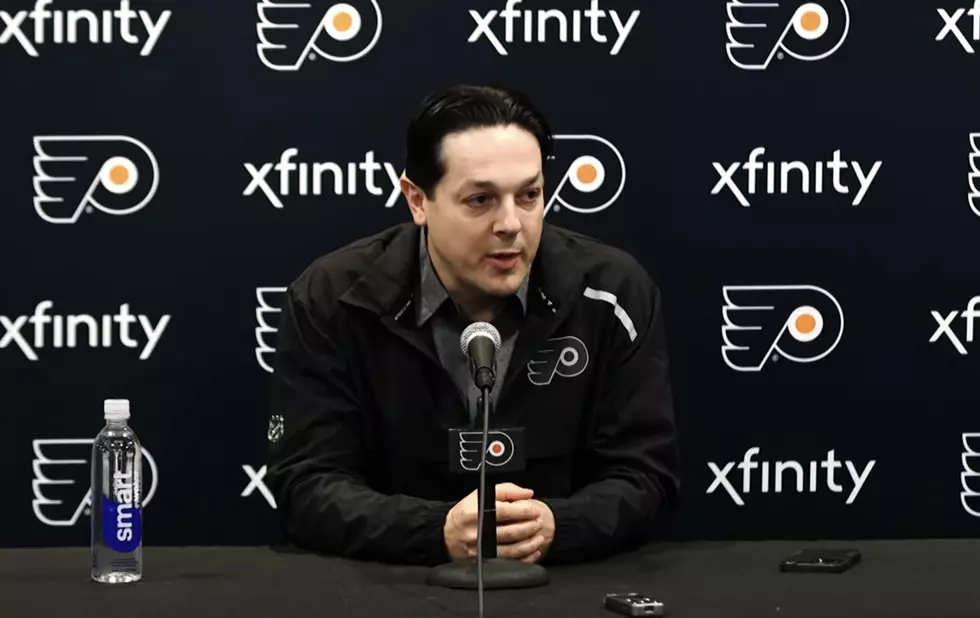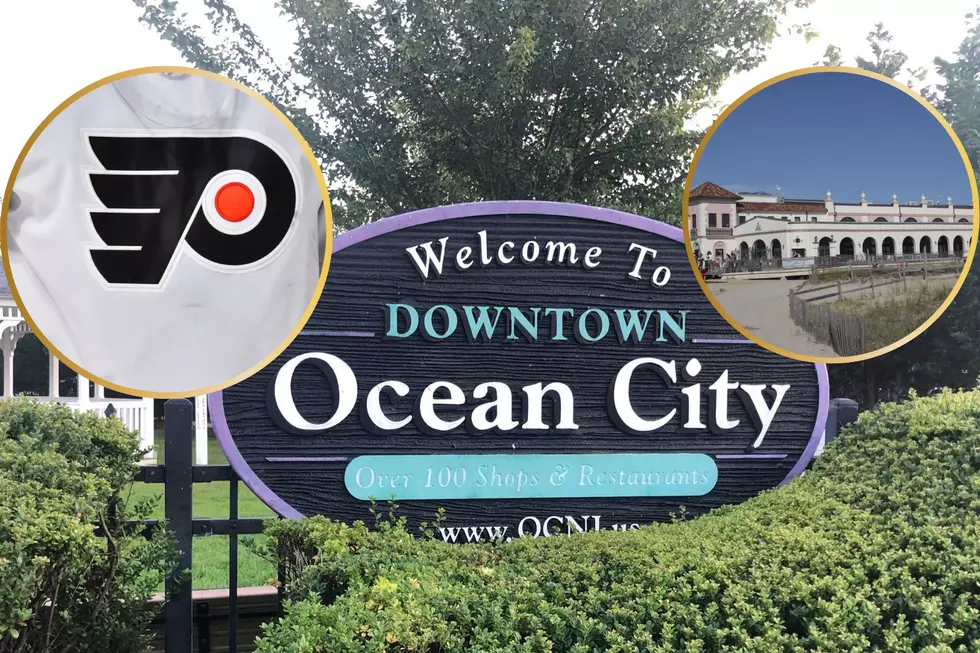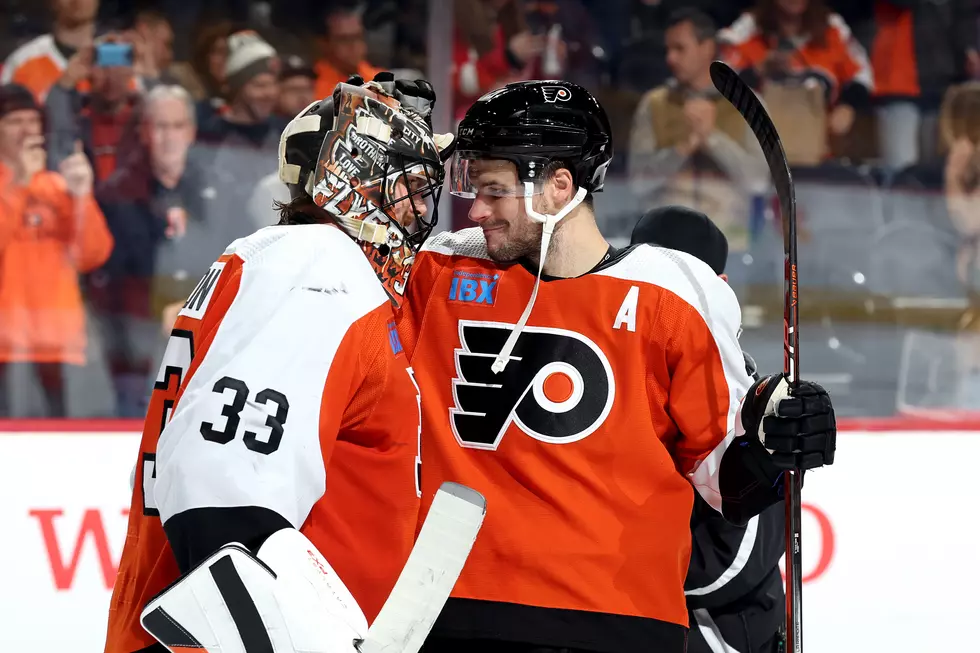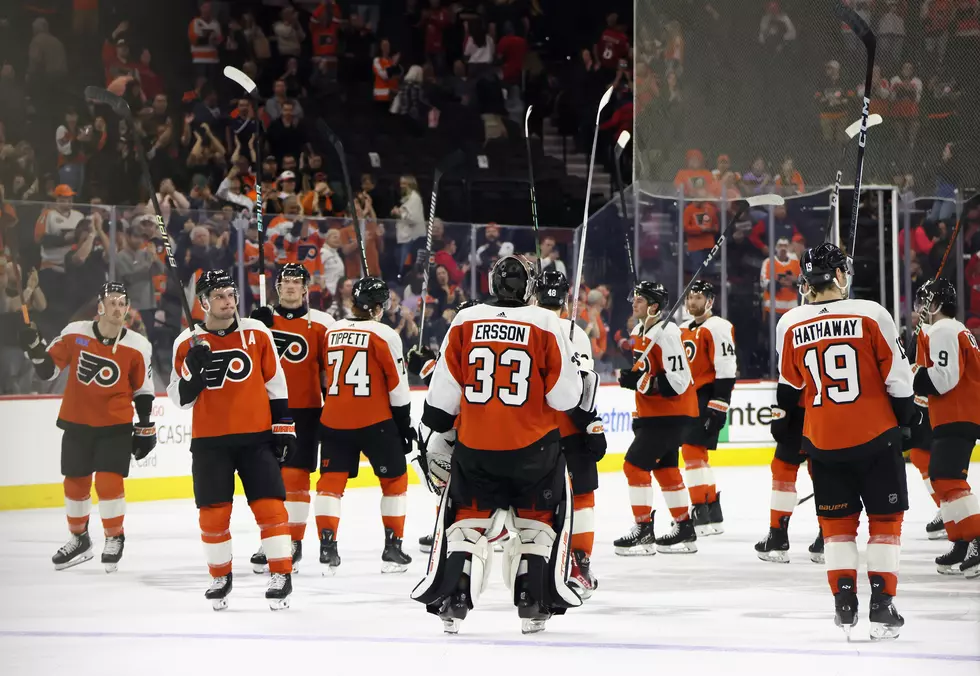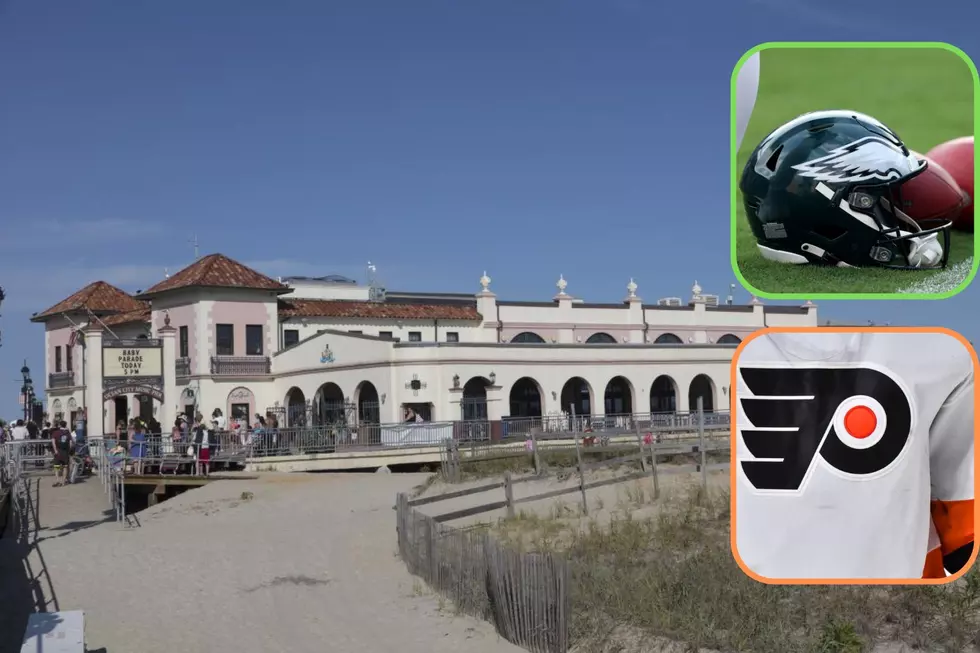
Flyers Notes: GM Chuck Fletcher’s Exit Day Interview
As with everything else that has gone on since the return of the NHL, this wasn’t your normal exit from the 2019-20 season. Following the Flyers unceremonious 4-0 loss in Game 7 to the Islanders in the second round, many players did not even return to Philadelphia and just returned to their hometowns. There were no exit interviews with players and the last we will hear from Alain Vigneault came in the moments following Game 7.
GM Chuck Fletcher put the wraps on the 2019-20 season with his exit day media availability on Thursday afternoon, discussing a range of topics. The overwhelming theme: there’s not a lot of room for flexibility around the league and don’t expect much to change in the next few months.
The flat cap is going to hamper a lot of the usual offseason activity. It’s not a good year to be a free agent and teams are more likely to look through the avenue of trading to make any notable improvements.
The Flyers don’t really have that flexibility. Sure, they can explore options through trade, but they don’t have the cap space - like a lot of teams - and Fletcher’s overwhelming theme was not wanting to divert from the philosophy of continuing to develop young talent.
Here is a rundown on some of the notes from Fletcher’s exit day media availability.
Injuries
Fletcher updated the status of some players. In addition to Sean Couturier’s MCL injury - which he admitted following Game 7 - Fletcher added that Michael Raffl played through a high-ankle sprain that was a reaggregation of the injury suffered during Round Robin play, and Nicolas Aube-Kubel was dealing with a bad bruise as the result of blocking a shot off the inside of his knee. As of Thursday, no Flyers players were scheduled for any offseason surgeries.
A Season of Progress
Fletcher noted the disappointment of ending the season one game shy of the conference finals, but did view the season as a whole as a success.
“You’re always really disappointed after a tough playoff loss. Losing a Game 7 is tough," Fletcher said. "We go into that Game 7 and we’re one of five teams left playing in the NHL and 26 teams are already done and you’re one win away from getting to the final four which is tough to do in any year. So you’re always disappointed at the end of a playoff run.
“When I look back at where we were 17 months ago, when we had a press conference in the same room I’m in now, we talked about the things we had to do and you fast forward 17 months and I think we’ve come a long way. I think the coaching staff deserves a lot of credit. I think we were on pace to reduce our goals against by over 60 in one season which is incredible. Offensively, we were better, our special teams were on a net basis fifth-best in the league. We showed a lot of progress, we had a lot of young players get better, our goaltending situation stabilized, our defensive structure was better, we played the right way. We’ve made a lot of strides, and yet having said that, clearly, when you get into the playoffs and lose in the second round, it shows you have more work to do. The goal for us is to continue to improve and make as many strides in the next 12 months as we did in the past year and see where that takes us.”
Nolan Patrick’s Health
This was a huge topic throughout the season as the timeline for Patrick to play continually was pushed back until he was no longer an option for the 2019-20 season. With an entire season lost, Patrick is definitely behind in his development and his ability to fill a key role.
Fletcher did say that Patrick is feeling better and has returned to a “mostly normal life” since March. He’s been skating, working out, golfing and Fletcher believes he will play at some point next season.
Fletcher couldn’t offer an exact timeline though, saying they will need to get him back into a contact situation before determining when he can actually return. Patrick is a restricted free agent this offseason.
The Power Play
This was obviously a big talking point of the playoffs. Fletcher acknowledged that the Flyers power play struggled to score in the playoffs over the 13 games of the first and second round.
“It’s inconsistent. Exact reasons? We’ll have to dive into that," Fletcher said. "I know we made tactical adjustments, we moved people around and we weren’t able to find a way to score in the playoffs. Obviously, a lot of time and effort was put in. You always have to be careful. It’s a small sample size. It’s obviously a critical sample size. We really could have used some power-play goals. But you go back to certain times this year, you can find 10 or 15 games where we were clicking. Why that is, that will be one of the questions we have to answer and certainly we will look harder.”
Offseason Philosophy
Every year, many people want to see that flashy trade or that splash signing, but this really isn’t the year for it. Fletcher also feels that it wouldn’t “make sense to do a 180 and change philosophy,” especially given the prospects that were brought in through the draft during Ron Hextall’s years as GM.
There is a chance the ramifications of the pause due to the pandemic and the overall recovery from it could keep the salary cap flat at $81.5 million for upwards of two to three seasons, and with the expansion draft for Seattle coming up at the end of next year, doing something drastic this offseason may just not be in the cards.
“Clearly, we have been an organization that has put a lot of emphasis on drafting and developing players and we have a lot of young players that are either on the team or trying to push their way onto the team. Over the next three years, we have a lot of players currently on our team that are good players that are going to require new contracts. Everything we do, we’re going to have to do looking at it with a two-to-three-year window versus just a 12-month window. We’re going to have to make sure we manage the cap properly and we have the resources that we need to keep the good young players that are here.
“Having said that, you’re always looking to add pieces if you can to help your team. We will do that, but I don’t expect us to be a major player in free agency over the next couple years. I do expect us to aggressively try to keep our own players and obviously we’ll be working the phones to see what we can find on the trade front.
“We have a lot of good young players who still have their best days ahead of them. Experiences like we went through during the past four-to-six weeks only helps them in their development and helps them get to a better place the next time we get in the playoffs.”
Carter Hart
One area the Flyers don’t have questions is goaltending. Carter Hart certainly impressed in the postseason and had several moments where he showed his ability to bounce back.
“Carter’s a very good young goaltender and he performed really well in the playoffs. He performed well all year," Fletcher said. "I think at the beginning of the year, he struggled a little bit on the road, which I think is more of a fluke. He’ll probably have a more normal record on the road. He’s always played well on the road at every level.”
Fletcher didn’t talk much about expiring contracts - more on that in a moment - but did specifically mention Brian Elliott and how he has already had general conversations with Elliott and his agent about the possibility of a new deal.
Offseason Needs
Fletcher focuses on re-signing players and will discuss with the coaching staff the next steps. He said that everyone took this week as a time to get away and to “take the emotion out of it.” Starting next week, Fletcher and the Flyers coaching staff and front office will look at the areas to improve and the market for pending free agents to get started on re-signing players.
On What Went Wrong in the Playoffs
When talking about the postseason, Fletcher notably left out much about the three Round Robin games. He considered those games to lack the intensity of the play-in games in the qualifying round. Fletcher also acknowledged that the “bubble season” felt like an entirely new season and not the completion of the previous one.
With that in mind, Fletcher looked at the 13 games the Flyers played in the first and second round of the playoffs as a relatively small sample. He acknowledged that the team did not get production from the top line or top guys in the playoffs, but thought they passed the eye test and had good zone time and that their advanced statistics showed this and said he wants to be careful about putting a lot of stock into a 13-game sample in a strange season.
Fletcher was critical of the depth production, noting that the Flyers didn’t get enough from the bottom six in the 13 games in the playoffs.
In the series against the Islanders specifically, Fletcher noted that the Flyers defensive play was most disappointing.
“My biggest disappointment from the playoffs, is I thought our defensive detail slipped," Fletcher said. "The way we played our game prior to the pause, I don’t think we brought that game to the playoffs. Maybe when you’re struggling to score, you cheat a little.”
It’s a fair point by Fletcher, because the Flyers never really did seem like the same team. Sure, they came in and won the exhibition and all three Round Robin games, but the intensity level just wasn’t there and the Flyers faced teams with more urgency and intensity to their games.
When scoring became tough, you saw them try to make up for the lack of speed by trying to stretch the ice, which led to numerous turnovers and costly goals against. They were a much better team when it came to exits and puck management in the regular season, and it didn’t show at the most critical time in the playoffs.
Kevin Durso is Flyers insider for 97.3 ESPN and Flyers editor for SportsTalkPhilly.com. Follow him on Twitter @Kevin_Durso.
KEEP READING: Flyers Top Goal Scorers Each Year Since 2010
More From 97.3 ESPN

